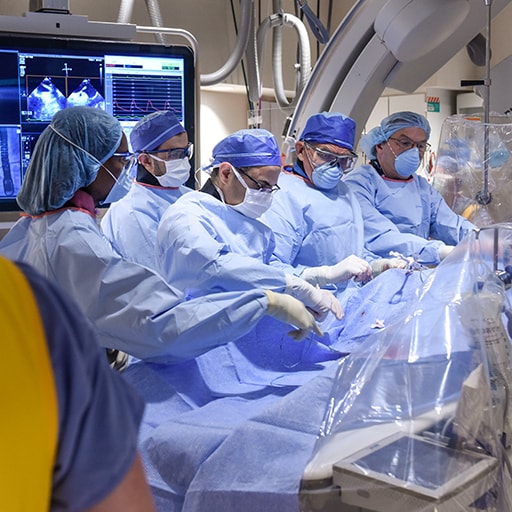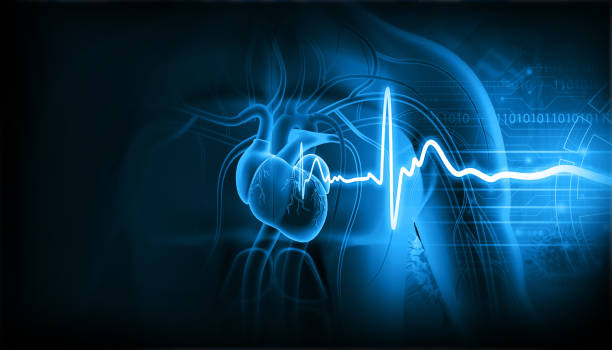Clearing confusion: Cardiology care basics and expert insights
Clearing confusion: Cardiology care basics and expert insights
Blog Article
Recognizing the Significance of Cardiology in Modern Medical Care Solutions
Cardiology plays a crucial function in modern-day medical care, especially as cardiovascular disease proceeds to be the leading reason for death worldwide. Advancements in diagnostics and treatment have actually changed patient care, enabling earlier treatments and boosted results. The change in the direction of preventative cardiology encourages people to manage their health proactively. As technology continues to evolve, the integration of cutting-edge remedies might additionally redefine cardiology's influence on public health and wellness, prompting a closer examination of arising patterns and their ramifications.
The Prevalence of Heart Disease and Its Effect On Public Wellness
Heart condition stays the leading reason of fatality worldwide, its influence prolongs far past individual people to impact public health systems and economic situations. The high occurrence of heart disease positions a considerable pressure on health care resources, requiring increased financing for treatment, recovery, and prevention programs. Public health campaigns should attend to risk aspects such as obesity, cigarette smoking, and less active way of lives, which add greatly to the increasing occurrence of heart conditions.Moreover, the economic concern linked with heart problem is enormous, incorporating not only direct clinical prices but likewise indirect expenditures associated with lost efficiency and early death. Communities face difficulties in taking care of these costs, typically bring about disparities in healthcare gain access to and results. As the populace ages and lifestyle-related threats remain to intensify, the necessity for effective cardiology interventions becomes vital. Addressing heart disease is not only a matter of individual health however additionally a critical public wellness top priority.
Developments in Heart Diagnostics and Imaging Techniques
Recent innovations in cardiac diagnostics and imaging strategies have reinvented the area of cardiology, enhancing the capability to detect and keep track of cardiovascular disease. Techniques such as heart MRI, CT angiography, and echocardiography have come to be increasingly innovative, giving detailed photos of heart structures and functions. These methods allow for the early identification of problems like coronary artery condition, heart failing, and valvular disorders.Moreover, developments in non-invasive diagnostics, such as wearable technology and remote monitoring gadgets, have equipped individuals and doctor. These tools assist in real-time tracking of heart rhythms and other vital indications, leading to timely interventions. Additionally, expert system is being incorporated right into imaging analysis, boosting precision and performance in medical diagnosis.
Technologies in Treatment Alternatives for Heart Conditions
Recent improvements in cardiology have actually caused significant technologies in therapy alternatives for heart problems. These consist of sophisticated medical techniques that enhance step-by-step outcomes and arising medicines that provide brand-new opportunities for treatment. As the field develops, these technologies play a vital role in enhancing patient care and end results.
Advanced Surgical Techniques
Innovations in surgical methods have transformed the landscape of cardiology, using brand-new hope for individuals with heart disease. Minimally intrusive procedures, such as catheter-based treatments, have greatly reduced recovery times and medical facility remains. Techniques like robotic-assisted surgical treatment enhance accuracy, allowing specialists to navigate complex anatomical structures with better accuracy. Furthermore, innovations in imaging innovation facilitate real-time visualization during treatments, boosting outcomes. Transcatheter aortic shutoff substitute (TAVR) exhibits a development in treating aortic stenosis, making it possible for valve substitute without open-heart surgical procedure. Additionally, hybrid methods that incorporate surgical and catheter-based techniques give tailored solutions for numerous cardiac problems. These advanced surgical methods not only boost person security but additionally broaden treatment alternatives, emphasizing the crucial function of development in modern-day cardiology methods.
Arising Therapies and medications
As the landscape of cardiology continues to progress, emerging therapies and drugs play an essential function in boosting therapy options for heart disease. Technologies such as novel anticoagulants and advanced lipid-lowering representatives have transformed the monitoring of heart diseases, substantially decreasing client morbidity and mortality. Furthermore, the growth of genetics treatments and regenerative medication provides encouraging avenues for treating problems previously regarded permanent. Scientific trials are consistently disclosing the efficiency of these therapies, pressing the boundaries of traditional therapies. Furthermore, the assimilation of digital health and wellness technologies facilitates tailored medicine, permitting customized treatment plans based upon hereditary and way of life elements. Jointly, these improvements emphasize the vibrant nature of cardiology, boosting client results and redefining requirements of care in contemporary health care.
The Duty of Preventive Cardiology in Patient Care
Preventative cardiology plays an essential duty in individual treatment by focusing on the identification of danger factors that add to heart disease. With way of life adjustment methods and very early detection methods, doctor can effectively minimize the occurrence of cardiovascular events - Cardiology. This proactive approach not just boosts patient outcomes but additionally advertises long-term health and wellness
Danger Element Recognition
While cardiovascular illness continue to be a leading source of morbidity and death worldwide, efficient threat factor recognition works as a keystone of preventative cardiology. Identifying threat aspects such as hypertension, household, hyperlipidemia, and diabetic issues history is necessary for early treatment. Medical care specialists utilize numerous evaluating approaches to review these aspects, enabling customized preventive measures. Additionally, understanding a client's way of life choices, such as smoking and physical lack of exercise, further notifies risk assessments. This detailed analysis enables medical professionals to develop customized care strategies focused on mitigating dangers. By focusing on risk variable identification, health care systems can improve patient results and lower the total concern of cardio conditions, ultimately adding to boosted public health and wellness strategies and source allotment.
Way Of Living Alteration Strategies
A wide variety of studies highlights the important role of lifestyle alteration strategies in reducing heart disease danger. These approaches encompass nutritional changes, boosted physical activity, smoking cessation, and weight management. By embracing a heart-healthy diet regimen abundant in fruits, veggies, entire grains, and lean healthy proteins, people can reduce cholesterol levels and blood stress. Normal exercise reinforces the heart and enhances overall cardiovascular wellness. Furthermore, stopping cigarette smoking greatly lowers the risk of heart illness and improves recovery prices for those with status quo. Weight monitoring additionally adds to cardiovascular health by reducing various other danger variables such as diabetes and high blood pressure. Carrying out these way of life changes not only promotes specific wellness but likewise acts as a foundation of preventive cardiology in individual treatment.
Very Early Detection Strategies
Way of living adjustments substantially add to lowering heart disease risks, but they are most reliable when coupled with very early discovery strategies. Precautionary cardiology emphasizes the importance of identifying potential heart issues before they escalate right into major problems. Strategies such as high blood pressure surveillance, cholesterol screening, and progressed imaging innovations like echocardiograms play essential roles in assessing cardiovascular health. Biomarkers and hereditary screening likewise enhance the precision of early discovery, enabling customized preventive strategies. Regular cardiac risk assessments encourage doctor to interfere proactively, potentially stopping cardiac arrest and strokes (Cardiology Jupiter). By integrating these early detection techniques into routine care, clients can gain from timely way of life treatments and targeted therapies, ultimately boosting and boosting outcomes high quality of life
Integrating Innovation Into Cardiology Practices
As improvements in innovation remain to improve numerous areas, the integration of cutting-edge devices and systems right into cardiology techniques has actually ended up being important for improving client care and outcomes. Telemedicine platforms allow cardiologists to monitor people from another location, improving access to care while reducing the burden on medical care centers. pop over here Wearable tools, such as smartwatches, make it possible for continuous heart rate tracking, informing both physicians and clients to prospective concerns in real-time. In addition, expert system (AI) is being used to assess substantial quantities of heart information, helping in very early diagnosis and personalized treatment plans. Advanced imaging techniques, consisting of 3D echocardiography, boost visualization of heart frameworks, causing more accurate interventions. Electronic health and wellness documents (EHRs) enhance person information monitoring, making sure that cardiologists have instant accessibility to important information. With each other, these technical developments are transforming cardiology, promoting aggressive administration and boosted wellness outcomes for patients with cardiovascular problems.
The Importance of Person Education And Learning and Involvement
Patient education and engagement play an essential function in the administration of cardio wellness. By equipping people with expertise about their conditions, therapy alternatives, and lifestyle modifications, doctor encourage individuals to take an active role in their treatment. This positive approach can bring about enhanced adherence to suggested medicines, dietary adjustments, and exercise regimens, eventually official site decreasing the risk of complications.Engagement additionally cultivates a strong patient-provider partnership, encouraging open interaction and count on. When patients really feel notified and included, they are more probable to voice concerns and ask concerns, which can lead to much better medical outcomes. Furthermore, academic sources, such as workshops or digital platforms, can enhance understanding and promote self-management methods. Generally, focusing on individual education and learning and involvement is vital for enhancing cardio health, boosting high quality of life, and reducing health care costs connected with heart diseases.
Future Trends in Cardiology and Their Potential Effect

Often Asked Questions
What Way Of Living Modifications Can Reduce Heart Problem Risk?
The existing concern addresses way of living modifications that can considerably decrease heart disease risk. Dr Garcia. Taking on a well balanced diet plan, engaging in normal exercise, preserving a healthy weight, taking care of anxiety, and preventing tobacco can especially enhance cardiovascular wellness
Exactly How Can I Recognize Very Early Signs of Heart Troubles?
Acknowledging early indicators of heart problems entails tracking symptoms such as chest discomfort, shortness of breath, tiredness, and irregular heart beat. Timely recognition of these indicators can motivate required clinical assessment and treatment for much better end results.
What Are the Differences In Between Cardiologists and Cardiac Surgeons?
The distinctions between cardiologists and cardiac surgeons exist in their duties; cardiologists mostly take care of and diagnose heart disease through non-invasive techniques, while heart cosmetic surgeons execute procedures to deal with structural heart problems. Each plays a vital, unique duty.

How Often Should I Get My Heart Wellness Checked?
The regularity of heart checkup varies based on specific threat aspects. Typically, adults should undertake examinations every one to two years, while those with present problems may call for even more frequent assessments as suggested by health investigate this site care professionals.
What Duty Does Genes Play in Heart Problem Risk?
Genes significantly affects heart illness risk, with domestic patterns suggesting inherited problems. Specific genetics can predispose people to hypertension, cholesterol concerns, and other cardio issues, highlighting the importance of hereditary screening in reviewing heart health. Heart condition stays the leading reason of death around the world, its effect expands far past individual people to affect public wellness systems and economies. Public wellness initiatives need to address danger factors such as weight problems, smoking, and inactive way of livings, which contribute considerably to the rising incidence of heart conditions.Moreover, the financial worry associated with heart illness is tremendous, encompassing not only direct clinical costs yet additionally indirect expenses related to lost performance and early death. Precautionary cardiology plays an important function in person treatment by focusing on the recognition of danger variables that contribute to heart condition. Synthetic knowledge (AI) and machine understanding are enhancing diagnostics and person surveillance, enabling early detection of heart diseases. The distinctions in between cardiologists and cardiac surgeons lie in their duties; cardiologists mainly identify and handle heart conditions via non-invasive techniques, while heart cosmetic surgeons perform surgical procedures to remedy architectural heart concerns.
Report this page